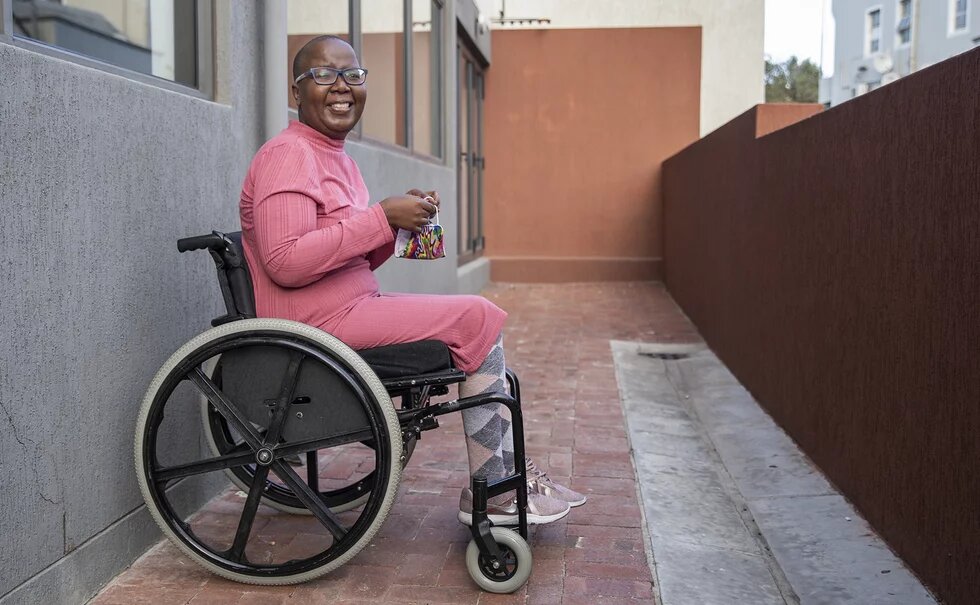Ensuring public spaces are accessible to all is the first step to making a city truly inclusive. But, as I’ve come to realise in my 11 years in Cape Town, not everyone is consulted — or even considered — when it comes to the planning of a city. In the first of a series that will appear every Friday, we meet Makgosi Letimile, a wheelchair user from Observatory who is afraid to leave her home.

Every activity in my daily life is an act of protest.” This is how Makgosi Letimile describes her experience as a disabled woman living in Cape Town. From the moment she opens her flat door and heads down the corridor of the nine-storey building where she lives, to the moment she reaches her destination, 36-year-old Makgosi is fighting a battle largely ignored by most fully abled people in our city.
We ask Makgosi about the spaces in her neighbourhood she might enjoy on a regular basis so that we can photograph her there. Her response is that she isn’t able to get to any public space on her own as the pavements are too uneven. The only option, which is simply too risky, is to go along the road.
She reflects on the many barriers she encounters when attempting to access public or, for that matter, any space. From relying on a functioning lift and the help of others to open doors, to having to hire an Uber to go anywhere — be that work, a park or a shop — she is effectively paying an ongoing toll to live her life in this city.
Some afternoons, when Makgosi is looking for a little sun, she sits in front of her building to “watch the world go by”. She parks her wheelchair behind a low wall that separates the street from the sidewalk, where she says she feels safe. If she feels a little braver, she moves her wheelchair to the piece of pavement that borders the street so that she has a wider view.
Trill Road in Observatory is a typical working-class Cape Town street — its surfaces are uneven and cars park along both sides despite its narrowness. Many park on the sidewalk, making it virtually impossible for a person on a wheelchair to get through. The road is noisy and motorists often go beyond the speed limit for a residential area. It’s little wonder that Makgosi is reluctant to use the road to go anywhere — she is afraid for her life.
Since public transport is not a viable option for someone in a wheelchair — she has spent months on a waiting list to access MyCiTi’s “dial-a-ride” service for disabled people — she has to use Uber, which quickly becomes very expensive. Sometimes her partner, who does not live with her, takes her out in his car. This has made her realise that learning to drive, and owning a vehicle, is the only way to really access the city.